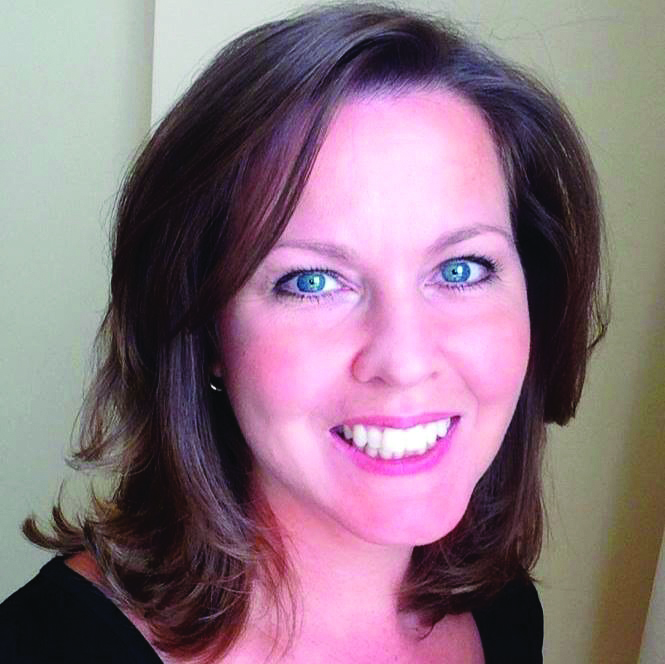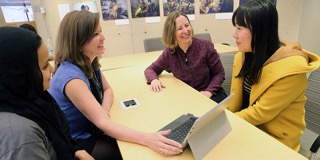
Angela Nelson, President of Stages Learning Materials
Years in the education business: 20
Year Joined EDmarket: 1999
When was your company founded and how?
In 1993 as an undergraduate at UCLA. I met Dr. Ivar Lovass who was prominent in the new field of autism research. Autism was gaining attention on a national level with a diagnosis rate of 1 in 3,000; today the rate is 1 in 68. Dr. Lovass was adapting Skinnerian methods to help children with autism develop functional and academic skills. The field was so new, with no professional associations and no licensing, that they were signing up undergraduates and paying them to learn behavioral strategies and work with children.
I started working with children, but there were no good tools designed for the needs of children with autism. They are strong visual learners and need specific types of flash cards with real-life photographs rather than cartoons in order to develop language skills. I started pasting magazine pictures onto index cards: the children needed clear pictures, such as an apple with a white background not an apple on a plate, which might confuse them. There is a lot of solid research on how kids with autism learn, there were just no products to use to teach them.
When someone asked me if I was the publisher, I had to look it up in the dictionary… and then I realized that was exactly what I was.
Angela Nelson, Stages Learning Materials
Learning from the cards I made for my students, other therapists, parents, and teachers approached me to see if I could make a set for them, as well. I was charging my hourly therapy rate to photocopy cards for them, and quickly realized that I could print off large quantities for less money… a win-win. I didn’t set out to create a business.
What was your first job?
My first real job with a paycheck was at Taco Bell. Before that I had waited tables at a small restaurant in a tiny farming town in California where I grew up. From a young age I was entrepreneurial, always looking for ways to make money: I had a paper route and did a lot of babysitting. I have always had a drive to work and to create.
Stages Learning is unique because we use real photographs, which is essential for working with kids with autism. We pay close attention to the research on autism and design our products accordingly. Our adherence to research based design has also resulted in Stages Learning receiving, in the past three months alone, the Puzzle of the Year award from Creative Child for our Community Helpers Puzzle, the Tillywig Toy Award “Brain Child” for our Fruit Cube Puzzle, and the Family Choice Award for our Vegetable Cube Puzzle.
What makes your company unique?

Stages Learning is unique because we use real photographs, which is essential for working with kids with autism. We pay close attention to the research on autism and design our products accordingly. Our adherence to research based design has also resulted in Stages Learning receiving, in the past three months alone, the Puzzle of the Year award from Creative Child for our Community Helpers Puzzle, the Tillywig Toy Award “Brain Child” for our Fruit Cube Puzzle, and the Family Choice Award for our Vegetable Cube Puzzle.
Another area that sets our company apart is that early on we understood that in the push from print to digital it is not just about the edtech products, and it is not just about the print products: It is about the intersection of the two. This is important for the quality of children’s education and it is also important for selling in the education market channel. By tying edtech products to physical products we can recapture some of the money that has been diverted to technology based products.
What do you like best about the educational products industry?
I like that it is a friendly industry to work in with a laudable social mission. It’s not about making a dollar; it is about improving educational outcomes for children. If people just wanted to make money they would not choose this industry. The Educational Market Association has been a great source of support for me. I’ve gained confidence as a businesswoman, had some great mentors, and enjoy interacting with a friendly and professional community.
What are you most proud of?
I think the ability to adapt and change in the marketplace – to stay nimble –and to respond to the changes in demand. I went back to school, to the “Technology, Innovation, Education Program” at the Harvard Graduate School of Education (HGSE) just a few years ago. Going back to school helped me develop new skills, but also helped me learn to be more open, adaptive, and agile. We are also paying it forward by hiring graduates from HGSE and listening carefully to what they say: they have their fingers on the pulse of what is going on in the education marketplace, many are former teachers and school administrators.

Over the past 3 years, I have worked with many of the talented individuals I met through HGSE to develop a first-of-its-kind complete curriculum for early autism education. I could not be more proud of the work we have done together to create this invaluable tool and of the reception it has received in the classroom.
How has EDmarket helped your business?
It’s provided me with wonderful leadership opportunities and given me access to the voices of the people who sell my products and that are in there dealing with the teachers every day: calling on the schools and getting information about what works and doesn’t work for them.
What changes are you witnessing in the educational marketplace?
The biggest change is the move from print products to digital. This has been on the horizon for a long time, but the tipping point has now occurred and we are seeing digital resources really ramp up in schools. SIIA now estimates that educational software and digital content market is over $8 billion for PreK-12.
How has your company adapted?
We have been able to use interns to bring in a team-based collaborative approach to help us focus on user experience and tap into some into the innovative thinking and design research that is occurring at the school. We are able to bring in former teachers, special education teachers, school administrators, instructional designers and others as they finish their Master’s programs in “Learning and Teaching”, “Mind Brain and Education”, “Technology Innovation and Education” and other programs at the school.
I’m also able to immediately draw on my experiences at Harvard, a few years ago as a student and now as a teaching fellow. We work hard to figure out what teachers want and how to make a good product for them: that is our focus. By bringing in a diversity of talents and viewpoints, and by bringing in new energy from our interns and recent hires we have a lot of animated strategic planning sessions and are able to draw on new ideas about product evaluation, design, and marketing that helps us develop strong products to help teachers be successful.
What makes your products unique?
Stages was among the first companies to create materials specifically for autism. Its hard to imagine now, but when our company started more than two decades ago autism was still a new and mysterious diagnosis without dedicated teaching tools or curriculum. We were unique at that time, as the only publisher focusing in this space. We have stayed on the forefront of research and development, and now we are the first company to offer a complete and dedicated autism curriculum which features all of the materials, lessons, teacher supports, behavior management tools, record keeping and home communication systems to meet the needs of early autism education programs.
What has made your business successful?
Being able to be nimble and adaptive and not get caught up in a specific paradigm. Listening to our customers, our interns, and new staff and implementing innovative ideas as we move forward.
What one piece of advice would you give others in our industry?
Be willing to adapt and change. Be open and ready to respond to customer needs and changes in marketplace. Also, listen to the voices of your younger employees who have new and different ideas about everything from product development and design to sales and marketing.
As an EDmarket Board member what are you most excited about?
It has been a wonderful opportunity to serve on the board and there is excellent camaraderie. I’m excited about our ability to strategically adapt and change the model of our association in order to respond to the way that the business of education is being conducted. We have a unique window of opportunity right now: there is a lot of chaos and no one fully understands how the channel will be defined. No other association or organization is stepping in to fill this quickly changing space. We can serve all the players in the education channel, but we need to act quickly.
How do you think the association is adapting to the changing marketplace?
EDmarket has placed itself at the intersection of space, pedagogy and technology. Our unique model, which brings together educators, architects, manufacturers and dealers involves all stakeholders in the process of creating the most inviting and effective spaces to support learning. This truly innovative approach to the marketplace will put our members in the best possible position to succeed in their mission to create successful businesses that support positive learning environments for today’s students.
Interested in EDmarket Leadership? Find out how.

